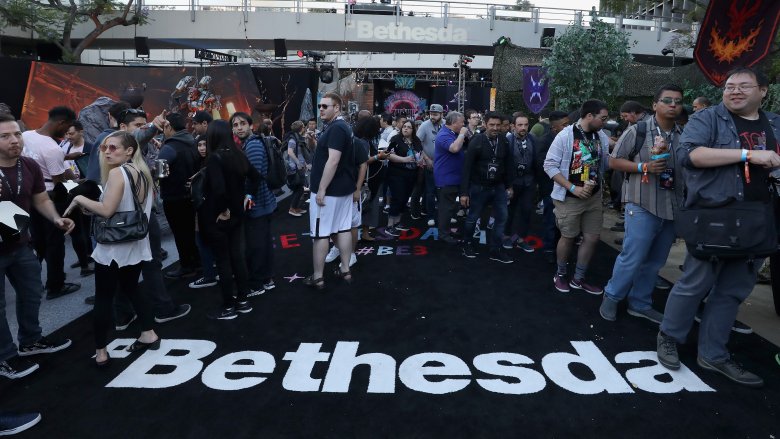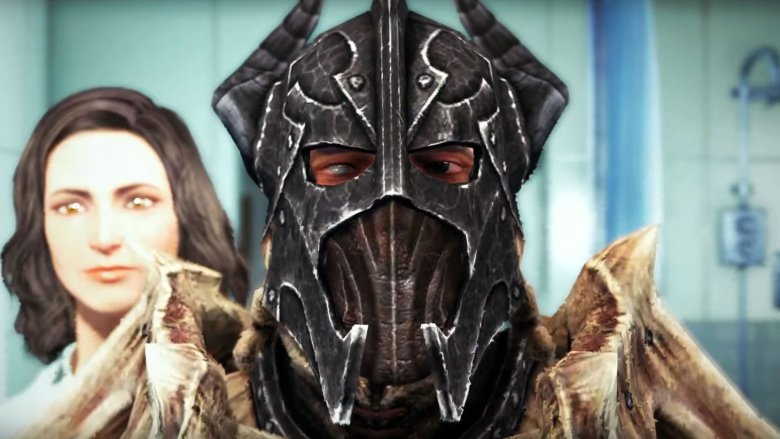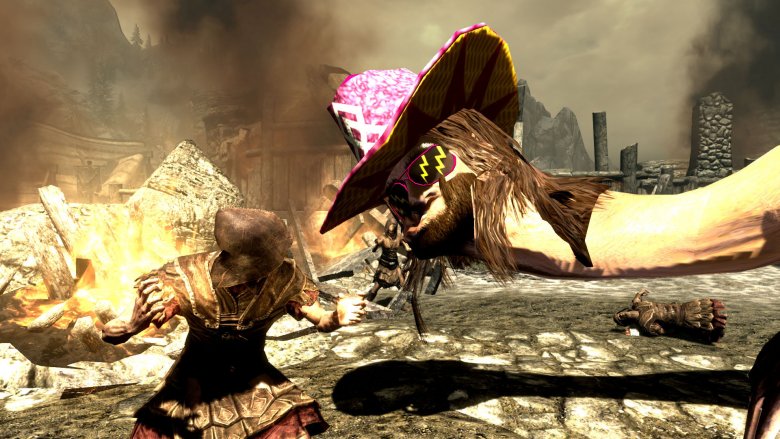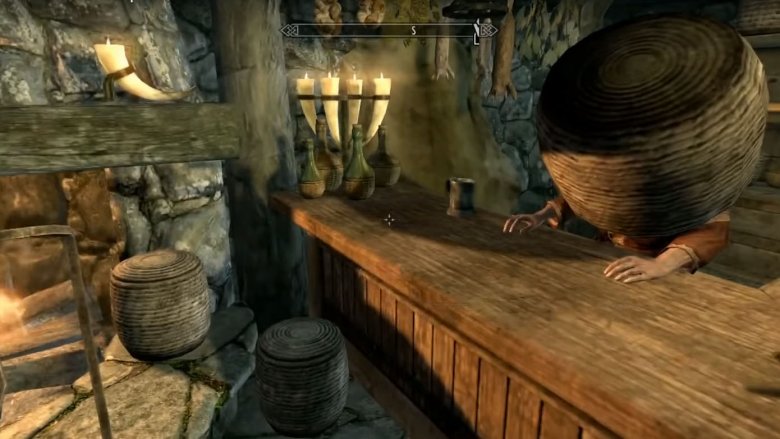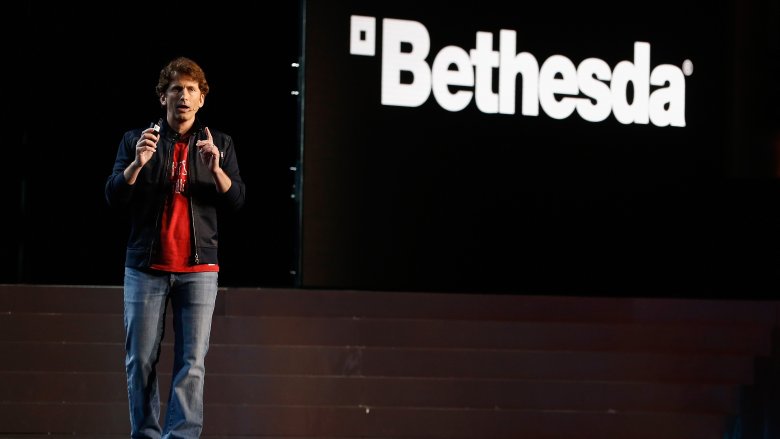Why Won't Bethesda Release Elder Scrolls 6?
No matter how much you might want it, Bethesda doesn't need The Elder Scrolls VI. Not yet, anyway. After all, The Elder Scrolls V: Skyrim is still one of the biggest and most popular games on the market. Bethesda Softworks, the part of the company that publishes The Elder Scrolls, has plenty of other good games on the docket. At the moment, The Elder Scrolls VI just isn't necessary.
That's good for Bethesda, too, because its in-house development team, Bethesda Game Works, is hard at work on a bunch of other projects—ones that, like it or not, aren't part of the Elder Scrolls brand. While The Elder Scrolls IV is inevitable, it's also a long, long way off. Here's why.
The company doesn't rush
Good games take a long time to make. Previous Elder Scrolls games like Oblivious, Morrowind, and Skyrim took years to put together. If you're holding out hope that The Elder Scrolls VI might be coming our way any time soon, that's bad news—especially considering that, as of this writing, Bethesda hasn't even started production on the next game.
For the past couple of years, Bethesda representatives have been very clear that the company is hard at work on not one but two games, neither of which is The Elder Scrolls, and both of which will take years to complete. These aren't small spinoff titles or mobile games like Fallout Shelter or The Elder Scrolls Legends, either—although Bethesda is working on some side projects, too. We're talking about fully-fledged triple-A games like The Elder Scrolls V: Skyrim and Fallout 4. Those take time, and time is a finite resource.
The Elder Scrolls VI is on Bethesda's long-term roadmap, but work won't begin until those two other games are finished. Bethesda hasn't said when that'll be, but by all indications you should prepare yourself for a long, long wait.
Bethesda Game Studios doesn't want to be known for only a couple of games
But why focus on other games when Bethesda is the steward of two the most-loved video game franchises of all time? Couldn't the company make plenty of money cranking out Fallout and Elder Scrolls titles? Why waste time with something else?
The answer comes down to pride. While the talented folks at Bethesda are proud of the work they've done on The Elder Scrolls, they want everyone to know that they're capable of much, much more. As Bethesda vice president Pete Hines has pointed out, they "didn't want to be the developer that was just Elder Scrolls, Fallout, Elder Scrolls, Fallout for the rest of their development careers."
If you look over Bethesda Game Studios' credits list so far, however, it's pretty much all Fallout and Elder Scrolls (and expansion packs), with a single racing game—IHRA Professional Drag Racing 2005—thrown in. "They wanted to be able to self-determine things they worked on next, whether it was existing stuff whether it was new IP," Hines explained. That means exploring a couple of new projects before returning to the world of Tamriel. Don't worry, The Elder Scrolls will be back—just not right away.
Bethesda just finished working on Fallout 4
Even if The Elder Scrolls VI was next on the Bethesda's docket, it'd still be a long time before the game was ready. The studio just finished development on an open-world RPG called Fallout 4. You might've heard of it.
Fallout 4 launched in November 2015 after a surprise (well, sort of) announcement at E3, North America's biggest video game trade show, earlier that year. But the game's big debut was only the beginning. Throughout 2016, Bethesda continued to produce content for the game. Six separate expansion packs fleshed out Fallout 4's post-apocalyptic world by adding locations like the Nuka World amusement park and new options for the game's creatively oriented build mode. A series of patches cleared up technical issues while introducing new gameplay elements like a hardcore survival mode and the Creation Kit, which makes modding easy.
In fact, Bethesda didn't stop producing new content for Fallout 4 until February 2017, when the company released the official High Resolution Texture Pack for players with HD monitors (and a bunch of spare hard drive space). Bethesda reportedly only has about 180 employees, and many of them don't work in development. With the two secret games, Fallout 4, and a bunch of smaller side projects, there just haven't been enough resources available to make something like the Elder Scrolls over the past few years.
The Elder Scrolls V still has plenty of players
Releasing a sequel makes the most sense when the series' previous game starts losing steam. The Elder Scrolls V: Skyrim doesn't have that problem. Since Skyrim's 2011 release date, Bethesda's sold more than 30 million copies of the game. It's been featured on NCIS, earned over 200 perfect review scores, and has been called the best game—not the best role-playing game, but best game period—of all time.
In other words, Skyrim is remarkably popular, and it's no surprise that it's still one of the most-played games around. More than half a decade after Skyrim's debut, the two versions available on Steam (the digital distribution platform offers both the original version and a more remastered special edition) still average about 25,000 concurrent players at a time combined.
That's less than the type of crowd that hits like PlayerUnknown's Battlegrounds, Valve's esports heavyweight Dota 2, and whatever this week's hot triple-A title tends to be. It's enough, however, to make Skyrim the 11th-most-played title on Steam, and puts it above games like Grand Theft Auto V, which came out two years after Skyrim, and Bethesda's more recent open-world role-playing game, Fallout 4. That's just on Steam, too, which only counts a subset of players. Skyrim is available on a number of different platforms, and most of those won't show up in Steam's figures. To put it bluntly, Skyrim still has a lot of life—and potential sales—left in it.
New people are still discovering Skyrim, too
It's been well over five years since players started exploring Skyrim's dragon-filled wilderness, and new players are still jumping in all the time. After all, not everyone has a gaming-capable PC, and if you never picked up a PlayStation 3 or Xbox 360, you didn't have a console-friendly way to play until recently, either.
As a result, Bethesda is still working as hard as it can to bring Skyrim to as many players as possible. In 2016, The Elder Scrolls V: Skyrim Edition launched on the PlayStation 4 and Xbox One, bringing the world of Tamriel to current-generation consoles for the first time. A year later, the Nintendo Switch release has made it easy to play Skyrim both at home and on the go. A virtual reality adaptation is on its way, too, making Skyrim's vast open world more immersive than ever.
Not only do these fresh releases grow the Skyrim community and keep the hype train going, but they also represent new markets Bethesda is probably eager to exploit. In most cases, porting an existing game—especially one as big as Skyrim, which requires years to design—is cheaper than producing a new title. As long as there are still people who haven't bought Skyrim but want to, a sequel is completely unnecessary.
Mods keep Skyrim fresh and modern—and keep the cash rolling in
According to Bethesda, the average Skyrim player spends 75 hours with the game. For most titles, that's plenty of time to see everything at least once. Besides, Skyrim came out in 2011. No matter how good a game is, after that long, most of them start to show their age.
But Skyrim is different. Not only is the game itself huge, but it also has an active and passionate modding community that's been cranking out content consistently since day one. Mods—or fan-made add-ons—can be used to create new weapons and armor (including guns), transform the game into a survival challenge or kingdom simulator, add entirely new quests and locations, or just make things extra weird. Mods make sure Skyrim still looks great when compared to its newer competition, too, with add-ons that improve the textures, 3D models, lighting, and more.
With over 50,000 mods (and counting) available on NexusMods alone, Skyrim basically never ends. And while many game developers turn a blind eye to modifications, Bethesda actually embraces it. In September 2017, the company integrated its brand-new Creator's Club with Skyrim: Special Edition, creating an official way for modders to share their creations with the masses—and, in some cases, get paid. That's a great way to keep the Elder Scrolls experience going without making a whole new game, and represents a new source of revenue that Bethesda probably doesn't want to cut into quite yet.
A major Elder Scrolls game came out just a little while ago
No, we're not talking about The Elder Scrolls Legends. The Elder Scrolls Online, a massively multiplayer online role-playing game (think World of Warcraft), wasn't made by Bethesda Game Studios—development was handled by ZeniMax Online, another Bethesda subsidiary—but it is a giant, open-world Elder Scrolls game. It was also in development for seven years before the public got to play. That's a massive investment, and Bethesda probably doesn't want to split its audience.
The Elder Scrolls Online launched in 2014 to mediocre reviews, but it's been steadily improving ever since; if you think it isn't a "real" Elder Scrolls game, you should give it another try. In 2015, Bethesda dropped the game's required subscription. Now, all you need to do to play forever is buy the base package. Minor downloadable content packs appeared throughout 2015 and 2016, expanding The Elder Scrolls Online's virtual world. In 2017, the game's first major expansion pack, Morrowind, returned players to one of the most popular Elder Scrolls locations—and earned some very positive reviews in the process.
No, The Elder Scrolls online isn't a proper Skyrim sequel. It is, however, an Elder Scrolls adventure that you can play with friends. It's a great way to revisit a familiar world, and while it won't replace The Elder Scrolls VI, it should scratch that Elder Scrolls itch until the real follow-up arrives.
The technology isn't ready yet
The Creation Engine, the software that powers both Skyrim and Fallout 4, is capable of great things, but it's showing its age. It simply can't deliver an epic adventure like The Elder Scrolls VI, especially considering what Bethesda Game Works has planned. While the studio hasn't officially put The Elder Scrolls VI into development, the studio's designers have clearly thought about it a lot, and decided that the current technology simply won't get the job done.
"I could sit here and explain the game to you, and you would say, 'That sounds like you don't even have the technology. How long is that going to take?'" Bethesda Game Studios director Todd Howard said. Before Bethesda can start work on The Elder Scrolls VI, the company needs to develop the underlying software first. That's not simple. As Howard admitted, "It is something that's going to take a lot of time, what we have in mind for that game." Some of that new tech will be created in conjunction with Bethesda's other in-development titles, but even so, it's going to take a lot of work.
There's no room for The Elder Scrolls on Bethesda's publishing schedule
Bethesda has two sides. Bethesda Game Works makes games; Bethesda Softworks publishes them. Sure, Bethesda Softworks is the company that brought the Elder Scrolls V: Skyrim and Fallout 4 to market, but it's also responsible for publishing titles from other studios, including Arkane, id Software, and Zenimax.
And if you haven't been paying attention, Bethesda Softworks has been very, very busy over the past couple of years. In 2016, the company released the well-regarded Doom reboot and Dishonored 2. In 2017, they produced Prey, The Evil Within 2, Dishonored: Death of the Outsider, and Wolfenstein II: The New Colossus. Quake Champions and many others are still on the way.
If Skyrim is any indication, the next Elder Scrolls will be an absolute juggernaut, and will likely take sales away from any games that release alongside it. As long as Bethesda Softworks has a steady stream of solid titles at the ready, it doesn't need The Elder Scrolls VI to compete in the crowded video game marketplace. In fact, it might be better for the company to save it. Over the past couple of years, every game Bethesda Softworks has published deserves attention—attention that they're not going to get if there's a new Elder Scrolls sitting on store shelves.
Patience is a virtue
All that being said, The Elder Scrolls VI is coming. We just don't know when. We won't for a while, either. Recently, Bethesda has been keeping its projects secret until they're almost ready for release. Fallout 4 wasn't unveiled until E3 2015, which took place in June, and launched the following November. Fallout Shelter, Fallout 4's mobile tie-in, was a complete surprise that nobody knew about until the day it came out. At E3 2017, every single "new" game Bethesda announced was scheduled to come out the same year.
That sounds like it's going to be Bethesda's approach for the foreseeable future. "The gap between hearing about it and it coming out, I like that to be really short," Bethesda Game Studios director Todd Howard admits. Howard likes to preserve the feeling of excitement that accompanies a game's big reveal all the way through release, but there's a practical reason, too. "The other thing is, while you're making a game, you're figuring out, 'OK, what's really good about it?'... If you're talking about that too early, people aren't getting excited, they're getting anxious."
In other words, while The Elder Scrolls VI is absolutely on Bethesda's radar, don't expect to hear anything official for the next few years. Be patient. It'll be worth the wait.

